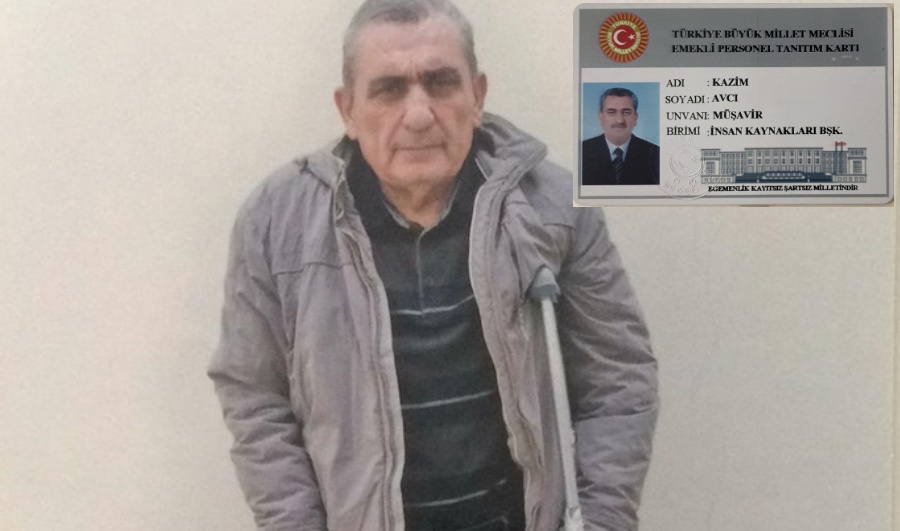Kazım Avcı, 67, who is serving an aggravated life sentence for allegedly violating the Turkish constitution, told his family during a visit on Tuesday that his health had deteriorated considerably and he did not feel fit to remain in prison, the Bold Medya news website reported.
Avcı had suffered a heart attack on February 2 and still has numbness in his hands and backaches. Avcı told his family he was experiencing panic about a second heart attack and had difficulty sleeping.
“I still have blocked vessels, and my fingers are numb,” Avcı told his family. “My mental health has deteriorated and I don’t feel safe. I can’t sleep and feel like I’ll have another attack. I can’t be properly treated while I’m still in prison. I don’t want to be forgotten here.”
Avcı is considered disabled since his leg was amputated due to a train accident. His son-in-law shares a cell with Avcı and helps him with his daily needs. His family said the prison cell was cold and not appropriate for a chronically ill person.
Avcı, a former public servant, was arrested for alleged links to the Gülen movement in February 2016 and sent to Sincan Prison in Ankara.
Turkey’s Justice and Development Party (AKP) government launched a war against the Gülen movement, a worldwide civic initiative inspired by the ideas of Muslim cleric Fethullah Gülen, after the corruption investigations of December 17-25, 2013, which implicated then-prime minister and current President Recep Tayyip Erdoğan’s family members and inner circle.
Dismissing the investigations as a Gülenist coup and conspiracy, the AKP government designated the movement as a terrorist organization and began to target its members. They intensified the crackdown on the movement following a coup attempt on July 15, 2016 that they accused Gülen of masterminding. Gülen and the movement strongly deny involvement in the abortive putsch or any terrorist activity.
During a hearing in April 2018, Avcı said had not committed any crime and was prosecuted for being Gülen’s cousin.
The purge of thousands of dissidents in the aftermath of the coup attempt in July 2016 has filled Turkey’s prisons, which today are overcrowded with tens of thousands of political prisoners.
According to the Human Rights Association (İHD), as of June 2020 there were more than 1,605 sick inmates in Turkish prisons, approximately 600 of whom were critically ill. Although most of the seriously ill patients had forensic and medical reports deeming them unfit to remain in prison, they were not released. Authorities refuse to free them on the grounds that they pose a potential danger to society. In the first eight months of 2020, five critically ill prisoners passed away because they were not released in time to receive proper medical treatment.
Source:Stockholm Center for Freedom (SCF)
***Show us some LOVE by sharing it!***



